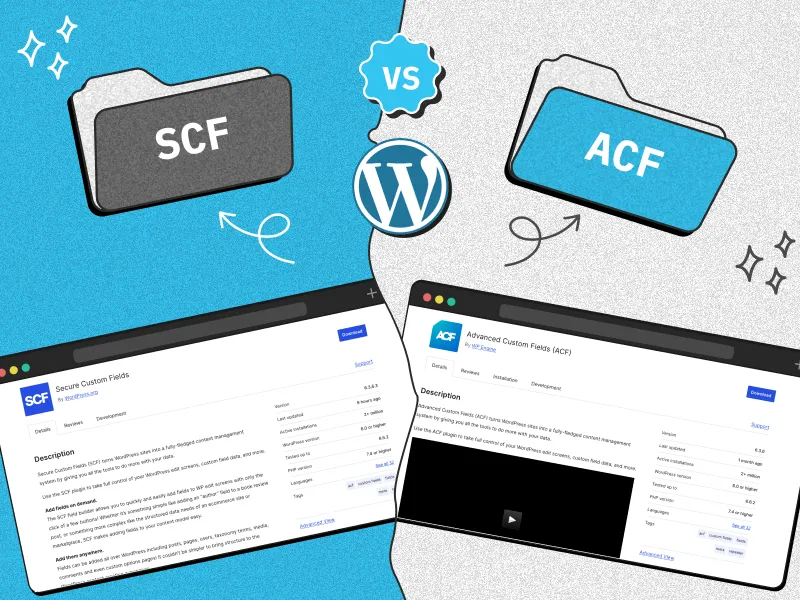Introduction
The demand for skilled web developers continues to surge as businesses recognize the pivotal role of an effective online platform in engaging customers and driving growth. With search engine optimization algorithms evolving and user expectations constantly rising, the expertise of a seasoned web developer is indispensable in crafting a website that not only captivates audiences but also ranks high in search engine results.
In the dynamic landscape of web development, the decision to hire web developer can significantly impact project outcomes and organizational success.
The question arises: Is it better to hire freelance web developers from a web development company or bring in an in-house team? This article delves into the intricacies of this decision, providing insights into the pros and cons of each approach. By exploring the nuances of freelance versus in-house web development, businesses can navigate this crucial decision with confidence, ensuring their projects are positioned for success in the ever-evolving digital realm.
Understanding Freelance and In-House Web Developers
To hire web developer, businesses are presented with two primary options: freelance and in-house. Each approach brings its own set of advantages and considerations, catering to different project requirements and organizational dynamics. For instance, did you know that Backbone.js is the best-paid skill for a Web Developer in the US? According to recent web development statistics, Web Developers proficient in Backbone.js earn a staggering +46.17% more than the average base salary. This highlights the importance of honing specialized skills to enhance your value in the marketplace.
Freelance Web Developers: When businesses opt to hire web developer on a freelance basis, they enlist the services of independent contractors who work remotely and typically on a project-by-project basis. These freelancers offer flexibility in terms of engagement, allowing businesses to tap into specialized skills for specific tasks or projects. Whether it’s web design, development, or maintenance, freelance web developers bring diverse experiences and expertise to the table.
With the freedom to work from anywhere, these professionals offer businesses a cost-effective solution without the overhead costs associated with traditional employment.
In-House Web Developers: Contrastingly, in-house web developers are full-time employees embedded within the organization’s infrastructure. These professionals work closely with internal teams, fostering seamless collaboration and alignment with organizational goals. With a deep understanding of the company’s vision, culture, and processes, in-house web developers offer stability and continuity in project execution.
By weighing the advantages and considerations of each approach, businesses can make an informed decision that aligns with their project objectives and organizational dynamics.
Pros and Cons of Hiring Freelance Developers
Pros:
- Flexibility: One of the primary advantages of opting to hire a web developer on a freelance basis is the flexibility it offers. Freelance developers can be engaged on a project-by-project or hourly basis, allowing businesses to adapt to fluctuating project demands.
- Cost-Effectiveness: Freelance developers often charge competitive rates and operate without the overhead costs associated with traditional employment. To hire web developer on a freelance basis, businesses can access specialized skills without committing to long-term financial obligations.
- Specialized Expertise: Freelance developers bring diverse skill sets and experiences to the table, allowing businesses to tap into specialized expertise for specific tasks or projects. Whether it’s web design, development, or maintenance, businesses can find freelance developers with the right skill set to meet their project requirements.
- Global Talent Pool: Leveraging freelance developers enables businesses to access a global talent pool. With the ability to work remotely, freelancers offer businesses the opportunity to collaborate with professionals from different geographical locations, bringing fresh perspectives and innovative solutions to the table.
Cons:
- Communication Barriers: Engaging freelance developers may introduce communication challenges due to time zone differences, language barriers, and varying work styles. Ensuring effective communication and project coordination can require additional effort and oversight.
- Quality Consistency: Maintaining consistency in quality standards can be challenging when working with freelance developers. Without a deep understanding of the company’s culture and processes, freelancers may struggle to align with project expectations, leading to discrepancies in quality.
- Dependency Risk: Relying solely on freelance developers for critical projects may pose a risk of dependency. Businesses may face disruptions if a freelancer becomes unavailable or decides to discontinue their services unexpectedly.
- Intellectual Property Concerns: Clarifying ownership rights and intellectual property issues is crucial to hire web developer on a freelance basis. Businesses must ensure that contractual agreements address these concerns to avoid potential conflicts over ownership of deliverables.
Pros and Cons of Hiring In-House Developers
Pros:
- Team Cohesion: One of the key advantages of hiring in-house developers is the opportunity to foster strong team cohesion. In-house developers collaborate closely with colleagues, fostering a sense of camaraderie and shared purpose that can enhance productivity and project outcomes.
- Effective Communication: In-house development teams benefit from direct communication channels within the organization. This enables efficient collaboration, swift issue resolution, and clear alignment with business goals and objectives. The proximity of team members facilitates seamless communication, even when transitioning to remote work setups.
- Streamlined Project Management: With in-house developers, businesses have direct oversight over project management processes. This allows for greater control over project timelines, quality assurance measures, and overall progress. Close integration with company processes and culture facilitates smoother project execution and alignment with organizational objectives.
- Knowledge Retention: In-house developers contribute to the accumulation of institutional knowledge within the organization. Through ongoing training and development initiatives, businesses can ensure that in-house teams stay updated with the latest technologies and industry trends, fostering continuous improvement and innovation.
- Deeper Alignment with Company Goals: In-house developers have a deeper understanding of the company’s vision, mission, and values. This alignment with organizational goals enables them to develop solutions that are closely aligned with business objectives, contributing to long-term strategic success.
Cons:
- High Fixed Costs: Maintaining an in-house development team entails significant fixed costs, including salaries, benefits, office space, and equipment. These expenses can add up quickly, especially for businesses operating on tight budgets or facing fluctuating project demands.
- Limited Flexibility: Unlike freelance developers, in-house teams may have limited flexibility in scaling operations up or down. Expanding the team or adjusting resource allocations can be time-consuming and costly, requiring careful planning and budgeting.
- Reduced Creativity: Over-reliance on in-house developers may limit exposure to external perspectives and innovative ideas. Full-time employees may become entrenched in existing processes and methodologies, potentially stifling creativity and inhibiting the exploration of new solutions.
- Dependency Risk: Building a reliance on in-house developers for critical projects may create a dependency risk for businesses. If key team members leave or become unavailable, businesses may face disruptions in project continuity and delivery timelines.
- Skill Set Limitations: In-house development teams may have limitations in terms of skill sets and expertise, especially for specialized or niche projects. Businesses may need to invest in additional training or hire web developer from outside to fill skill gaps, adding to the overall web development costs.
Balancing the pros and cons to hire web developer in-house requires careful consideration of organizational needs, project requirements, and long-term strategic objectives. While in-house teams offer benefits such as team cohesion and alignment with company goals, businesses must weigh these advantages against potential challenges such as fixed costs and skill limitations.
Read More: 5 Things to look for when choosing a web development agency
Situational Analysis: Factors Influencing Hiring Decisions
When considering whether to hire web developer, various situational factors come into play, influencing the decision-making process. Understanding these factors is crucial for making informed choices that align with the unique needs and objectives of your business. Here’s a breakdown of key considerations:
Short-term vs. Long-term Projects:
- For short-term projects, freelance web developers offer flexibility and cost-effectiveness, making them ideal for tasks with specific deadlines or deliverables.
- In contrast, long-term projects may benefit from in-house developers, who provide stability and ongoing support, ensuring continuity and alignment with organizational goals.
Specific Skill Sets and New Technologies:
- When seeking specialized skill sets or expertise in emerging technologies, freelance web developers offer access to a diverse talent pool, allowing businesses to find the right match for their project requirements.
- In-house developers, on the other hand, are better suited for supporting ongoing development needs and maintaining existing technologies, leveraging their familiarity with company processes and standards.
Startups vs. Established Companies:
- Startups often prioritize flexibility and cost savings, making freelance developers an attractive option for scaling projects based on evolving needs and budget constraints.
- Established companies may favor in-house teams for their stability and long-term investment, especially when undertaking large-scale projects requiring continuous support and maintenance.
Hybrid Approaches:
- Some organizations opt for hybrid models, combining the strengths of both freelance and in-house developers to achieve optimal results.
- This approach allows businesses to leverage the flexibility and specialized skills of freelancers while benefiting from the stability and cohesion of an in-house team.
By carefully assessing these situational factors, businesses can make strategic decisions to hire web developer, ensuring alignment with project goals, resource requirements, and overall business objectives. Whether opting for freelance or in-house developers, understanding the unique demands of each situation is essential for driving successful project outcomes.
Hiring and Management Strategies
To Effectively hire web developer and manage their contributions is essential for project success. Employing tailored strategies can streamline the recruitment process and optimize team performance. Here are some key strategies to consider:
- Identifying Talent:
- Utilize online platforms such as Upwork, LinkedIn, and specialized developer communities to find skilled web developers.
- Craft detailed job descriptions highlighting the specific skills and qualifications required for the role.
- Recruitment Channels:
- Post job listings on popular job boards like Indeed, Glassdoor, and Reddit to attract a diverse pool of candidates.
- Implement employee referral programs to leverage existing staff networks and identify potential candidates.
- Onboarding Process:
- Develop structured onboarding processes to integrate new developers into the team seamlessly.
- Provide comprehensive training on company culture, processes, and project requirements.
- Performance Feedback:
- Provide regular feedback and performance evaluations to guide developers and address any issues promptly.
- Recognize and reward achievements to motivate team members and boost morale.
Conclusion
The choice between freelance and in-house web developers ultimately depends on the unique requirements and objectives of each project and organization. By carefully evaluating the pros and cons of each approach and implementing tailored strategies, businesses can navigate the complexities of web development and harness the power of digital innovation for their success.
If you’re looking to partner with the best web development agency that can provide top-tier web development services, consider reaching out to Creole Studios.
Whether you’re launching a new website, upgrading an existing platform, or exploring innovative digital solutions, we have the expertise and resources to support your goals.Contact us today to learn more about our web development services and how we can help you achieve your objectives.














 30 mins free Consulting
30 mins free Consulting 
 10 min read
10 min read 


 Canada
Canada 
 USA
USA 






 Love we get from the world
Love we get from the world 